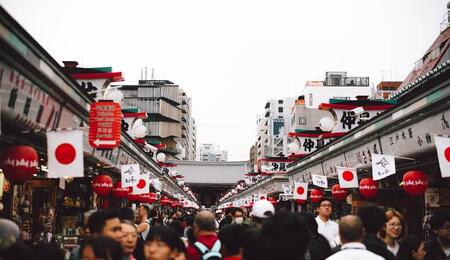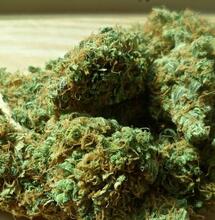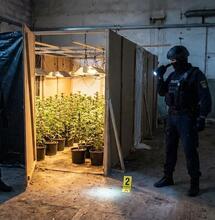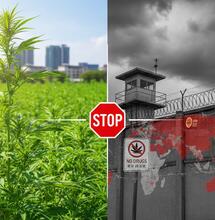Japan to Permit Cannabis Medicines

Japanese lawmakers have revisited legislation for both medical and recreational use of cannabis. The country’s parliament has agreed on changes where it advances the status of medical cannabis. But at the same time, recreational cannabis has been subjected to additional restrictions. Sections of Japan’s revised cannabis law will also seek to help the national hemp industry.
Japan’s parliament voted to legalize cannabis-based medicines, which were previously prohibited for use outside clinical trials. Simultaneously, the country’s lawmakers also agreed to fortify their ban on recreational cannabis, reported the Japan Times. The parliament passed the new bill on Wednesday, Dec. 6., and it should become effective a year after the announcement.
Japan is Famous for Its Stringent Cannabis Laws
The advancement of weed legalization in Asia has prompted the Japanese government to revisit its own outdated laws on cannabis. For a while there, it seemed that the island nation authorities might decriminalize the plant. But that’s apparently not the case anymore.
The previous law in Japan even forbade the use of cannabis-derived drugs and medicines if they were not part of a clinical trial. The harsh restrictions prompted patient groups to call for access to regular cannabis drugs that are already available in the United States and Europe, for example epilepsy medicines. Japanese lawmakers took into account their plea, but they turned a deaf ear for recreational weed.
Marijuana, which was already banned to possess or cultivate in Japan, is now also prohibited to use. That was a loophole in the law that the parliament sought to close. With the change that was made, violating the ban on marijuana consumption might result in a draconian seven-year sentence in prison in the future.
In the past, Japan did not penalize the use of cannabis. The main reason for that was to protect farmers who might get accidentally exposed to it while growing it for hemp production purposes.
Fears grew over the last few years that the lack of ban leads to young people abusing cannabis. In 2021, Japan observed a record number of arrests due to cannabis use. Out of 5,783 cases, 70% were for individuals in their 20s or younger.
Although examples from other countries have repeatedly shown that strict prohibition almost always backfires, the government’s course of action was to approve another prohibitive measure instead of relaxing the rules.
Pledge to Protect Hemp Production
Japan’s new cannabis law will also seek to create two kinds of licenses for growing cannabis. One will be for growing cannabis to manufacture medicines, and another for hemp cultivation. The legal changes for cultivation will enter into force in two years time.
Legal provisions for hemp will require for the government to establish a new framework that will try to improve the situation around hemp cultivation, which currently is at peril.
Hemp growing tradition goes back centuries in Japan. While some prefectures used to have thousands of hemp growers, their numbers have fallen dangerously low over the last decade.
In the Tochigi Prefecture, north of the capital Tokyo, a unique cultivar of hemp called Tochigishiro has been grown since the 1980s. Nowadays there are only a dozen farmers left that continue to cultivate the rare variety, and most of them are above the age of 60.
The new amendments in the law will look to increase the number of hemp cultivators and lessen the country’s reliance on imports.
Historically, hemp has some unique uses in Japanese culture. Fiber from hemp plants has been used to produce sacred ropes at Shinto shrines, and also belts sported by Yokozuna sumo wrestlers (the wrestlers of the highest rank).
Except for hemp products, cannabis is entirely illegal in Japan. The Land of the Rising Sun has practiced a zero-tolerance policy on THC products since 1948 when the Cannabis Control Law was introduced, the same act that was now reconsidered in parliament.
Also read on Soft Secrets:
- Who’s Funding the Global War on Drugs?











